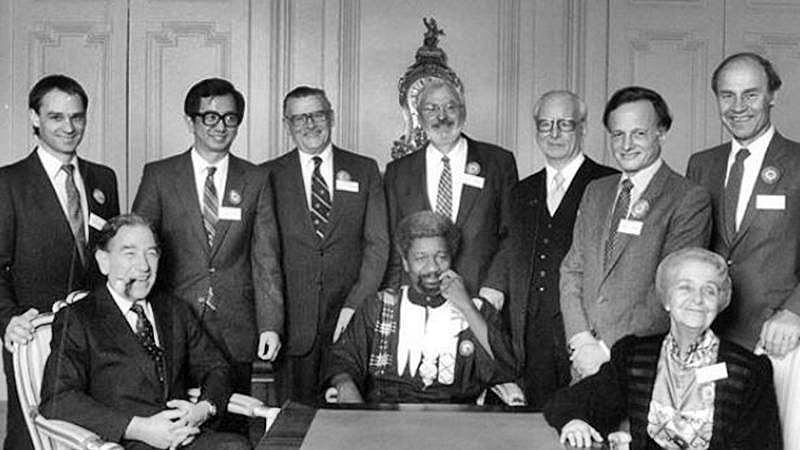World
Why did US ban Nobel icon, global dissenter, Trump critic Wole Soyinka?
Supporters call move an attack on dissent as literary giant’s visa revoked

Nobel laureate Wole Soyinka — Africa’s first winner of literature’s most contested prize and one of the world’s most outspoken humanists — has said his US non-resident visa has been revoked, a move he believes may be linked to his recent criticism of President Donald Trump.
Soyinka (91) revealed on Thursday, 30 October that he was notified that his visa status had been cancelled owing to unspecified “additional information” supposedly obtained by US authorities. The notice did not elaborate. Soyinka, however, suggested the timing was no coincidence.
The celebrated Nigerian writer recently referred to Trump as “a White version of Idi Amin”, drawing a parallel to the notorious Ugandan dictator — one of the most barbed criticisms yet from the author, who famously cut up his US green card after Trump's 2017 inauguration.
“It’s not about me,” Soyinka told reporters. “Human beings deserve to be treated decently wherever they are.”
He laughed off the ban as a 'love letter' and vowed not to reapply: “If you want to see me, you know where to find me.”
Soyinka — playwright, poet, dissident and democracy activist — is widely regarded as one of the strongest conscience-voices of the post-colonial world. His work against military oppression once earned him imprisonment in Nigeria — an experience he chronicled in his prison memoirs.
Published: undefined
His critique of power has never been limited by borders. Over decades, he has lectured in major US universities, calling out racism, authoritarianism, and the erosion of democratic norms worldwide — including in Washington.
The US, where Soyinka spent years teaching, is a second intellectual home. His sudden exclusion therefore carries symbolic weight far beyond a travel document.
Published: undefined
Scholars rally in solidarity
The move has triggered a sharp reaction among academic and literary circles, who see it as part of a troubling pattern of pressure on global critics.
Writers and cultural scholars noted that Soyinka has long been embraced in America’s universities, PEN networks, and human-rights spheres — from Harvard to the University of Lagos and across the African diaspora — and warned that blocking such a figure sends a wider message about dissent.
Many described the revocation as an affront to the freedom of thought the US historically claimed to champion. Several African intellectuals stressed that targeting a 91-year-old Nobel laureate for criticism of a leader mirrors the very authoritarian reflexes Soyinka spent his life resisting.
The bigger question
At stake, they argue, is not Soyinka’s ability to fly to New York — but what it means when a nation cancels entry to one of the world’s most respected writers after he calls a president authoritarian.
Soyinka, who has previously taken up teaching positions at esteemed institutions in the US and previously held a green card, joked on Tuesday that his green card "had an accident" eight years ago and "fell between a pair of scissors."
In 2017, he was reported to have destroyed his green card in protest over Trump's first inauguration.
Summing up, Soyinka remains unfazed. The rest of the world, however, is left asking a question he has built an entire career around an integral footnote:
When power lashes out at dissent, who really loses — the critic, or the democracy?
With AP/PTI inputs
Published: undefined
Follow us on: Facebook, Twitter, Google News, Instagram
Join our official telegram channel (@nationalherald) and stay updated with the latest headlines
Published: undefined